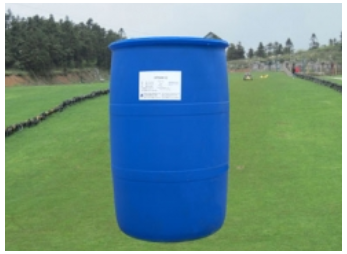Surfactant is widely used in electroplating process and its mechanism is complex, so far it needs to be studied in depth. But a lot of practice has proved that the adsorption of surfactant not only changes the current distribution on the surface of the plating, fills the micro groove, and reaches the surface flatness, but also changes the potential distribution of the electrode, increases the cathode polarization, promotes the formation of the crystal nucleus and makes the coating grain fine.

In addition, surfactants with - Oh, - SO3H, - COOH, - SH, rn= NR can also replace H2O in hydrated ions to form complexes with metal ions. When the metal ions in these complexes are deposited by cathodic discharge, they are mixed in the coating, which increases the brightness of the coating.
Some alkylglycoside surfactants can be used as corrosion inhibitors of metals as organic amines. The reason is that they have similar structure and adsorption characteristics. The molecules contain polar groups and hydrocarbon non-polar groups with solitary pair electrons (n, O, s, P, etc.). The electrostatic physical and chemical adsorption is formed by the complexation of electrons and metal surfaces by the arc on the polar base. At the same time, the π electron cloud on unsaturated double bond and three bond ring also forms chemical bond with metal, which makes the metal surface have double layer adsorption film, instead of the polar group directional arrangement to form hydrophobic protective film, which can inhibit the corrosion of the medium to metal.
The anionic surfactants, high-grade carboxylate and phosphate salt can be used as oil-soluble corrosion inhibitor alone; the combination of c12h25so4na, straight chain amine and NaNO2 as pore corrosion inhibitor can inhibit the pore erosion of 304 stainless steel in brine; nitrite carbonate and chromate of cationic surfactant amine can be used as black metal and non-ferrous metal a respectively 1. Mg, Ni, Sn, Cu, Zn are gas phase inhibitors; quaternary ammonium salt, 2-alkyldimethylaminoalkynylbromide are excellent anode inhibitors in lmoll HCI; alkoxymethylquaternary ammonium salt is suitable for the harsh conditions of concentrated acid and high temperature. Non-ionic surfactant molecules contain multiple ether bonds, which are good emulsifiers and corrosion inhibitors, which can be used to eliminate pitting.
For example, iron acid, n-alkyltrimethylammonium acetolactone and n-decaylpyridine salt have good corrosion inhibition near their critical micelles concentration; esters have excellent corrosion and scale inhibition properties in neutral water, and amines oxide and imidazole amphoteric surfactants are commonly used as corrosion inhibitors for oil field sewage and gas wells to resist H2S corrosion.